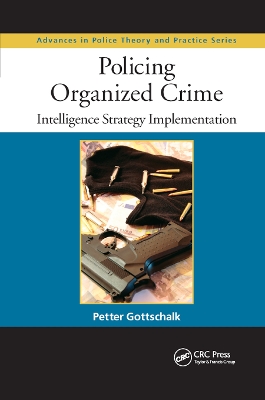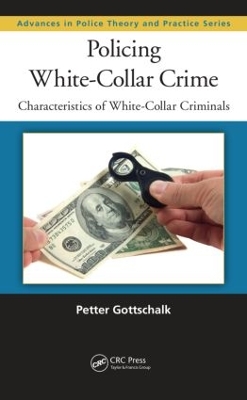Advances in Police Theory and Practice
2 total works
When criminal activity is as straightforward as a child’s game of cops and robbers, the role of the police is obvious, but today’s bad guys don’t always wear black. In fact, the most difficult criminals to cope with are those who straddle the gray divide between licit and illicit activity. Many of these nefarious sorts operate on the fringe of society, often acting the part of businesspersons, meeting the demands of otherwise law-abiding clientele with illegally procured or delivered goods. Others, specially trained to occupy positions of responsibility, make the most of position and special knowledge to partake of ill-gotten gains. Then there are the organized crime families and syndicates who make use of common business models to turn dubious undertakings into profitable ventures.
Policing Organized Crime: Intelligence Strategy Implementation addresses these very real types of modern criminals. It examines the methods and motives of those operating on the fringes of society, including more obvious outlaws as well as less obvious lawyers, businesspeople, and bankers, social outcasts as well as devoted family people. Written by Petter Gottschalk, an internationally respected police expert in organized crime, this book details the workings of entrepreneurial crime through the use of case studies from around the world. He presents strategies that will alter the thinking and investigative styles of those police charged with the responsibility of preventing and putting a stop to business crimes. Implementation of an effective intelligence strategy is a key element in his thinking. He demonstrates the shrewd skill set required to bring down those criminals who twist the rules of supply and demand with business models designed to maximize illegal gain.
This important resource is a volume in the Advances in Police Theory and Practice Series, which features the work of international experts who provide researchers and those i
Combating white-collar crime is a challenge as these criminals are found among the most powerful members of society, including politicians, business executives, and government officials. While there are many approaches to understanding this topic, Policing White-Collar Crime: Characteristics of White-Collar Criminals highlights the importance of police intelligence in confronting these crimes and criminals and focuses on the identification, retrieval, storage, and application of information resources.
Combining theory with case examples of some of the most notorious criminal enterprises in recent years, the book explores:
- White-collar crime typologies and characteristics
- The roles and structure in a white-collar crime enterprise
- Sociological perspectives on why women are substantially less involved in white-collar crime
- Why chief executives are vulnerable to the lure of white-collar crime
- Characteristics of victims who fall prey to these crimes
Theoretically based yet practitioner-oriented, this book offers a unique study of the contingent approach to policing white-collar criminals—emphasizing the essential elements of information management strategy, knowledge management strategy, information technology strategy, and value configuration in law enforcement. By implementing the techniques presented in this volume, law enforcement organizations can better develop and implement detection and prevention methods. This effective use of the critical element of police intelligence is a powerful tool for circumventing the tactics of white-collar criminals.

